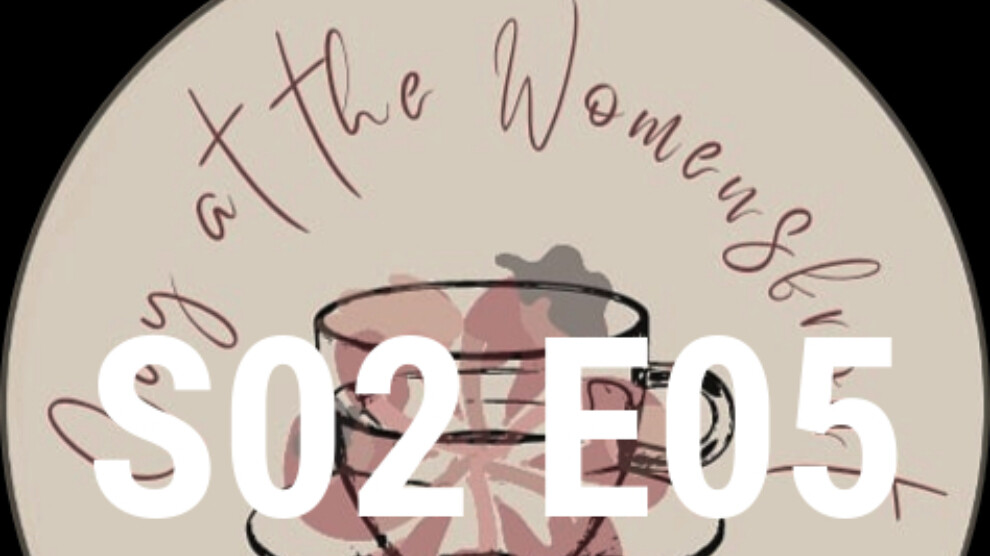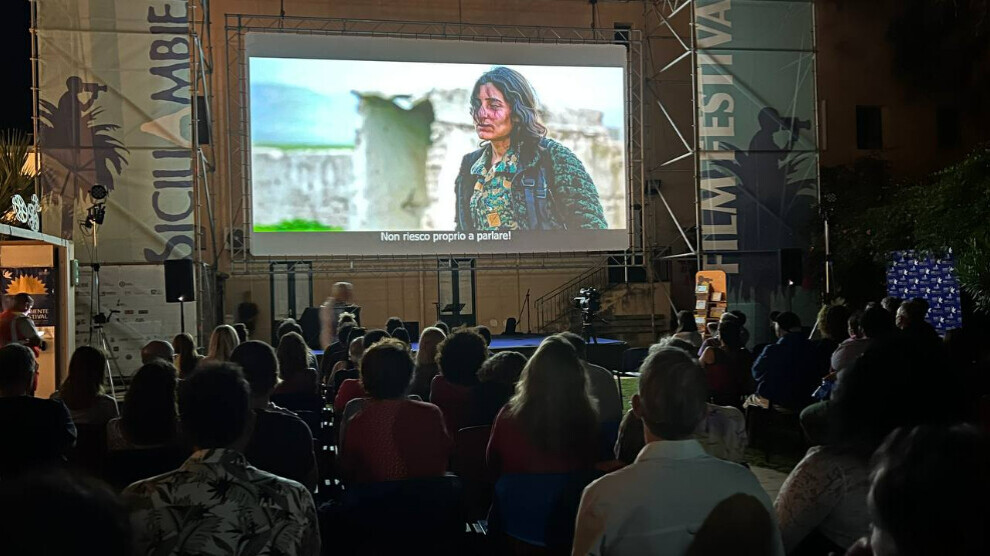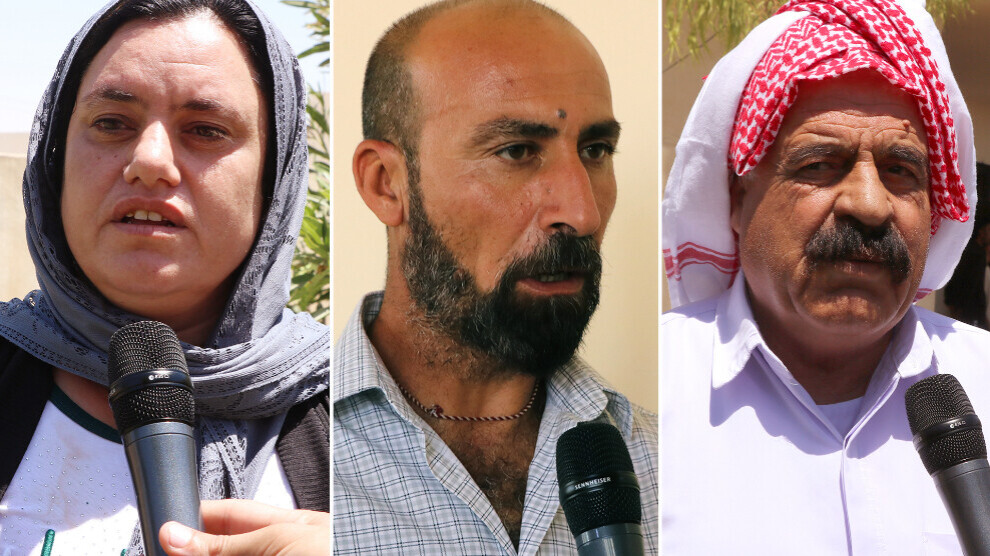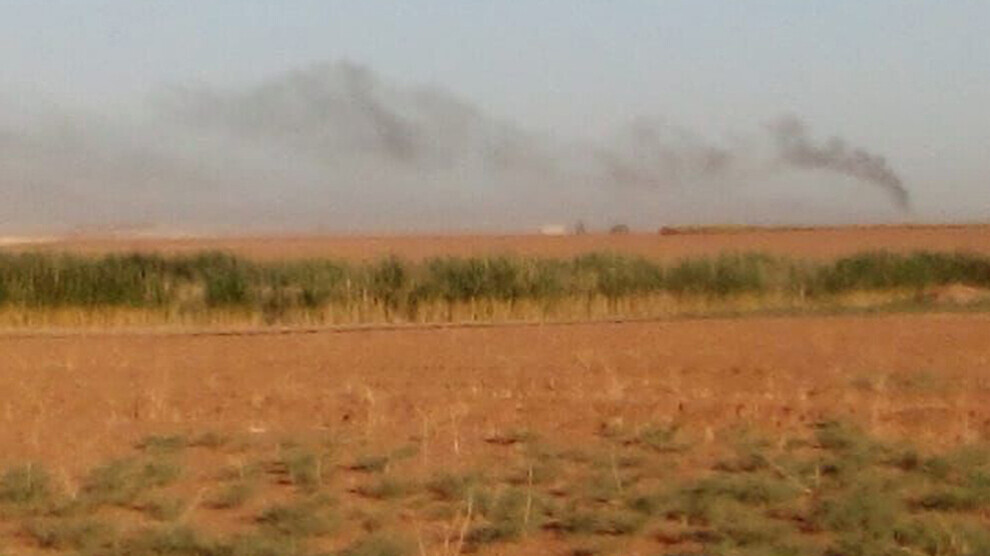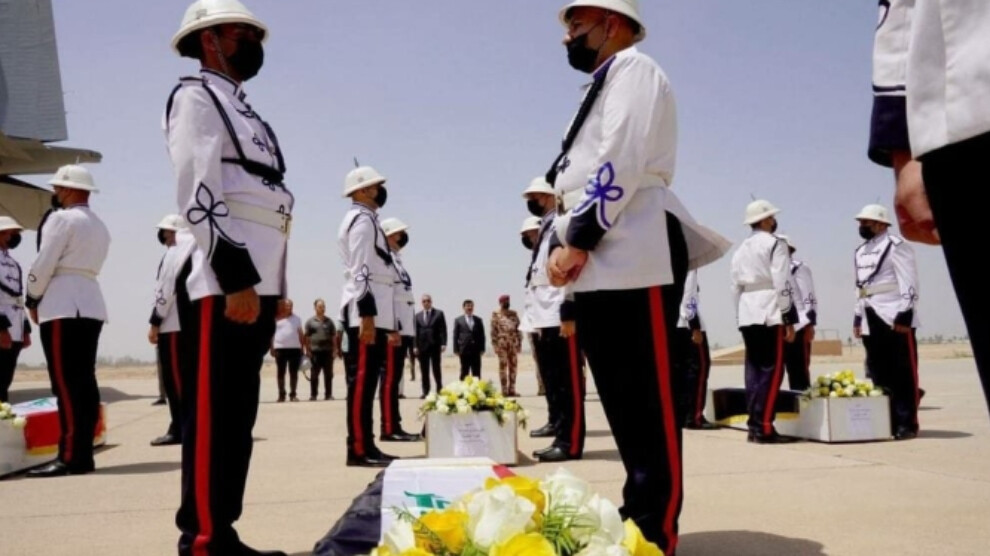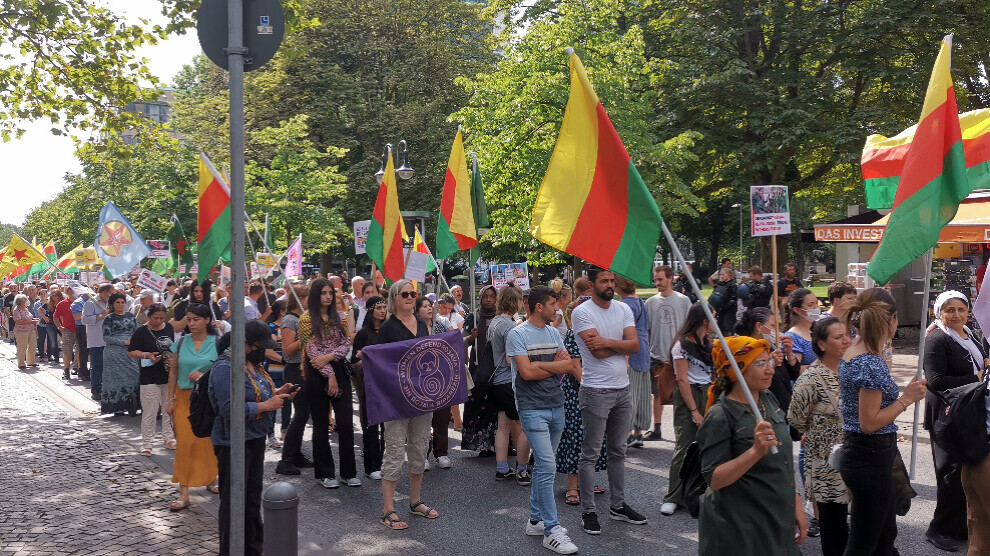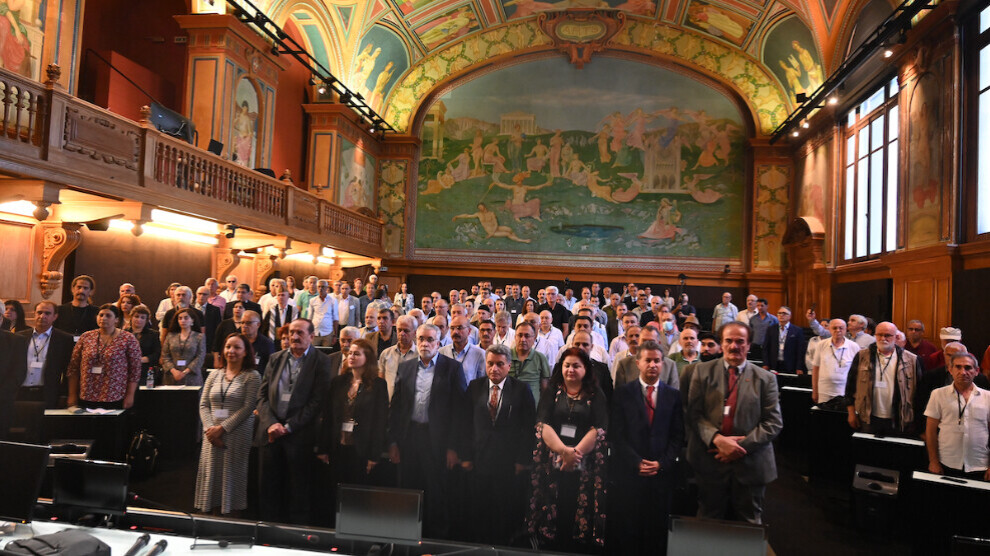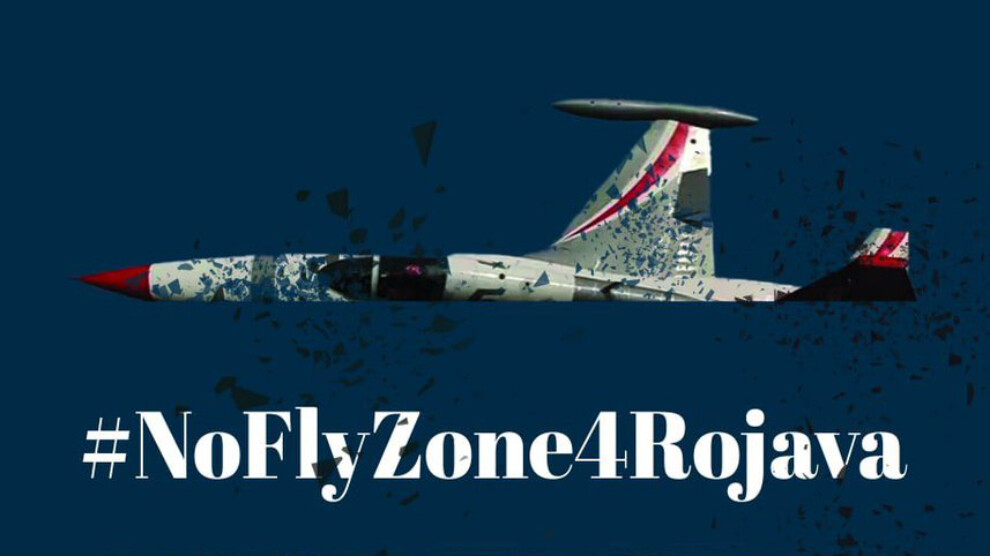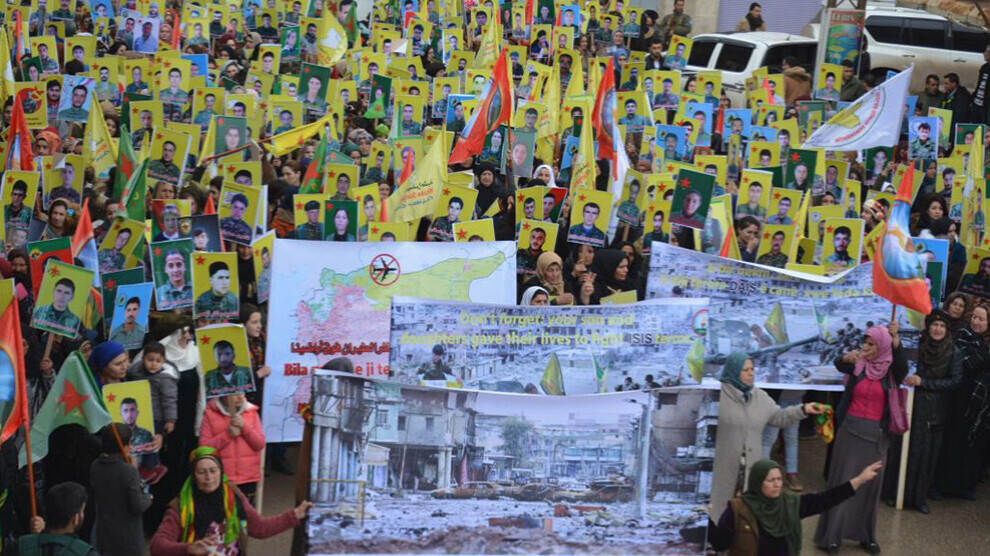
"THE APOIST PARADIGM WILL BE IMPLEMENTED EVEN MORE EFFECTIVELY"
The freedom revolution in Rojava is the first area where Rêber Apo's [Abdullah Öcalan] theory of democratic modernity was implemented to this extent and depth. It developed successfully on the basis of the educational and organising work that Rêber Apo had carried out in the region between 1979 and 1998. Despite mistakes and shortcomings, the paradigm of a free, ecological and democratic society of women was insisted upon. It is certain that if we learn the lessons of the past decade, the Apoist paradigm will be implemented even more clearly and effectively in the coming period.
In the last ten years, the Freedom Revolution of Rojava has been most successful in implementing the line of the democratic nation. In a region where all kinds of nationalist conflicts turned life into a bloodbath, the peoples of northern and eastern Syria, mainly Kurds and Arabs, but also Syriacs, Armenians, Turkmen and Circassians, have come together on this line and created a free life and a democratic administration together. They have shown and proved to the whole world that it is possible to live a free life in brotherhood without bloodshed and conflict. They did this in an environment of attacks, provocations, incitement and provocations of all kinds. We once again congratulate and commend the people of northern and eastern Syria for this.
"WOMEN'S LIBERATION - REVOLUTION WITHIN REVOLUTION"
It is clear that the freedom revolution in Rojava is, above all, also a freedom revolution of women. In this area, where revolutions take place within revolutions, great changes have been realised in the last ten years that might otherwise have taken a century to create. Women, who in the previous period could hardly participate in life outside the home and family, have become equal and pioneering participants in all areas of social and political life on the basis of a great deal of educational and organising work. The woman who has liberated herself on the basis of consciousness-raising and organising is both the creator and guarantor of a free society and democratic self-government. Despite some revolutionary developments, there is undoubtedly still much to be done and overcome in this area. We are convinced that with planned and organised efforts, these developments can be brought to fruition in the second decade.

"THE AKP-MHP REGIME IS BEHIND THE ATTACKS OF MERCENARY FORCES"
Although the Rojava Freedom Revolution began bloodlessly, it is well known that since its first anniversary it has been subjected to a multi-layered and very intense attack by fascist mercenary forces. Many of these groups, especially the ISIS, the FSA and al-Nusra, the Syrian offshoot of al-Qaeda, attacked the revolution and tried to stifle it. Moreover, the AKP/MHP regime in Turkey has openly and decisively participated in these attacks. This is absolutely certain. The Turkish state even launched its attack on Afrin in January 2018 and occupied the canton directly after the defeat of ISIS in Raqqa in October 2017. Nine years of revolution were therefore put into the defensive war against the fascist mercenary forces and the AKP/MHP regime.
"RESISTANCE OF ROJAVA BECAME THE FREE HUMANITY RESISTANCE"
The peoples of North and East Syria and the freedom forces of the YPG and YPJ have bravely resisted for nine years in defence of the revolution and the country, with more than ten thousand martyrs. This resistance represents the hope of humanity and has extended beyond the borders of northern and eastern Syria to the whole world. It has become a free humanity resistance. Hundreds of young people from all over the world, from Asia to Europe to America, came to North and East Syria and joined the resistance, fought bravely and fell. This situation has further developed and deepened the internationalist character of Rojava. On this occasion, we once again commemorate with respect and gratitude the internationalist martyrs of the defence of the revolution of Rojava and declare that their memory will live on in the worldwide struggle for freedom and democracy.
"OCCUPIED TERRITORIES WILL BE LIBERATED"
The peoples of North and East Syria and their freedom forces have repelled all attacks by mercenaries, especially ISIS, east of the Euphrates and liberated humanity from this scourge. In view of the fact that even regular armies could not withstand ISIS and had to flee, the fact that the freedom forces of Rojava defeated ISIS on a line from Kobanê to Raqqa and ended its territorial rule is of historical significance. This has made the freedom revolution of Rojava a victorious revolution. We believe that the same attitude will be shown against the attacks of the AKP/MHP invaders and the occupied territories will be liberated.
Undoubtedly, the initiatives and efforts such as the building of communalist life, the development of democratic self-governments, the establishment and functioning of democratic confederalism through the revolution are also of historical significance and are exemplary experiences for all. The fact that the whole society, especially women, turned to self-defence training and organising to defend the revolution and the country is truly historic and very inspiring. We are convinced that all this will be successfully implemented in the coming period.

"THE REVOLUTION HAS JUST BEGUN"
Of course, the task is not yet finished and the revolution is not over. On the contrary, everything has just begun. Major difficulties and obstacles may arise again. Attacks and new threats of occupation by various forces, especially the Turkish state, continue. All this requires a multifaceted, creative approach and good preparation in every respect. We believe that the peoples of North and East Syria and their freedom forces will train and prepare themselves in awareness of all this; they will successfully carry out all tasks of construction and repel all kinds of occupation attacks. On this basis, the freedom revolution of Rojava will continue to be a beacon of hope for all oppressed humanity.
Within this framework, we congratulate once again the tenth anniversary of Rojava and wish the people of North and East Syria every success in their efforts to broaden and deepen the revolution. On this basis, we assure that all our people and humanity will stand by them and always provide the necessary support."
Rojava Information Centre publishes new report about the Rojava Revolution
History of the Revolution: Much Achieved, Still Much to be Done, is the title of the new report about the Rojava Revolution published by RIC.
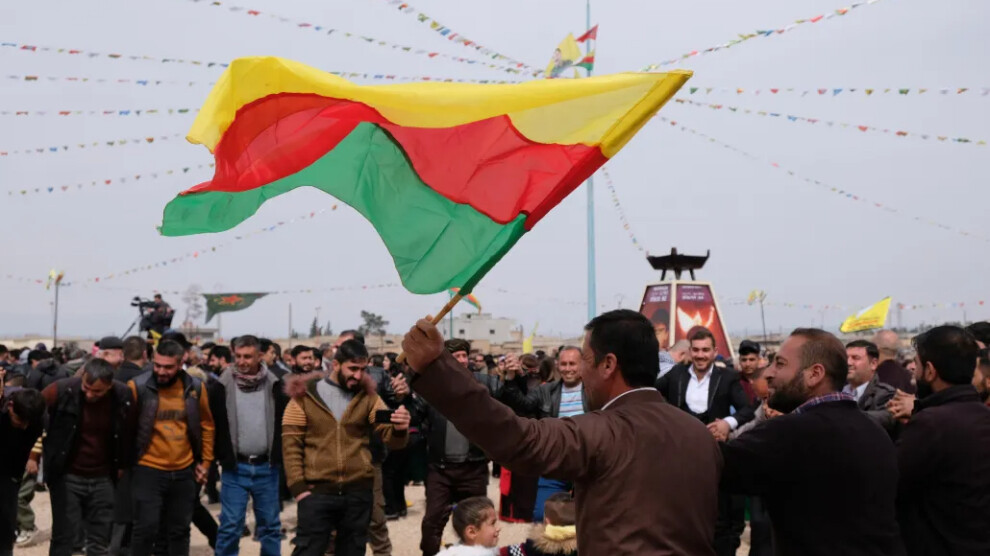
ANF
NEWS DESK
Wednesday, 20 Jul 2022
The Rojava Information Centre (RIC) celebrated the 10th anniversary of the Rojava Revolution by publishing a new report called "History of the Revolution: Much Achieved, Still Much to be Done".
In the introduction of Part One, RIC wrote: "The ‘Rojava Revolution’ began exactly ten years ago, on July 19th 2012, when three predominantly Kurdish-inhabited areas of Syria declared their autonomy from the central government.
Since then, a democratic, autonomous administration has attempted to create a grassroots, gender-equal and ecological society in these areas. Communes and councils, the democratic representatives of the population, organize life and administer society.
The political model has thus established itself in decided opposition to the old Ba’ath regime. Numerous people within society are involved in a wide variety of local and social activities – from the communes and councils to working in the health sector, the women’s movement or in self-defence structures."
The introduction underlined that "Rojava has also been synonymous with the war against the Islamic State (ISIS), the occupation of Turkey, overcrowded refugee camps, water shortages, crop failures and widespread poverty. But against the backdrop of an ongoing war, occupation, an embargo due to the Syrian Civil War, and a precarious humanitarian situation that makes basic staples scarce, Rojava has held its ground for ten years. The areas controlled by the democratic ‘Autonomous Administration of North and East Syria’ (AANES) have grown since 2012 and now include a third of Syrian territory and nearly a fifth of its population.
A decade on, the continued existence of North and East Syria (NES) – the more inclusive name of the region, which encompasses Kurdish-majority Rojava and the Arab-majority areas on the banks of the Euphrates – is an achievement in and of itself. In the eleven years since 2011, the Rojava Revolution has remained committed to its former values and consolidated its achievements, even as all other gains of the so-called ‘Arab Spring’ uprisings were squashed or coopted by national governments. This revolution, however imperfect, thus has something to teach the world about staying power."